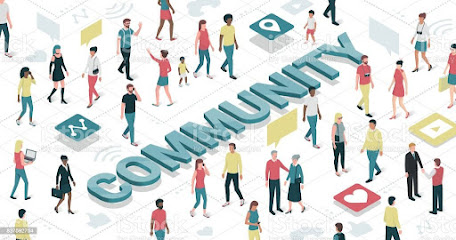Virtual Community No Substitute for the Real Thing
Humans are social animals. That is not new information. Even the ancients knew that it is not good for man to be alone.
Studying ancient and classical history shows many examples of where banishment from society was the worst possible punishment.
That is because humans are made to live in a community.
Virtual communities cannot replace real, face-to-face communities.
Virtual communities cannot provide meaning and fellowship in the same way. Virtual communities also, most certainly, cannot serve as intermediate structures between the individual and an all-powerful government.
A virtual community is no substitute for the real thing.
In his 1953 book, “The Quest for Community,” Robert Nisbet argued that radical individualism caused communities to break down. This desire for individual autonomy has weakened families, churches, clubs, groups, and associations.
People have flocked to virtual, online communities as face-to-face communities have declined. Many see these as "communities for a new generation."
In a face-to-face community, I come as I am.
In virtual communities, I come as the image I want to project. That is not a community.
Instead, we end up with narcissistic groups of false selves.
In this social media world, we may have more “friends” than we could have in the face-to-face community. But, the quality of those friendships is so poor that sociologists have coined the phrase “migratory friendships.”
Migratory friendships describe digital friends who have lots of information about each other but do not know each other.
Maybe you have seen this play out in person. Migratory friends text for long periods of time but when they get together in person they run out of things to talk about or do in about ten minutes and spend the rest of the evening or dinner texting, other people!
Our American founders created a country that respected individual rights and liberties, but always in the context of the people. People united in communities and associations, which secured individual rights from an otherwise all-powerful government.
As a result, you had a balance.
When he visited America, Tocqueville praised the civic virtue of Americans that resulted in building hospitals, schools, churches, etc. He marveled at our ability to work together because we knew each other and talked over difficult choices in favor of the community (not self).
However, in recent times, "individual autonomy” has exceeded the idea of community in America. Not surprisingly, as radical individualism has grown, government power has grown.
This individualism, coupled with online living, causes us to think we have 3,000 friends (followers) or some other large number while having face-to-face relationships with very few people.
This is a column for another time, but science has repeatedly proven that we only sustain 150 meaningful relationships. You can look up the Dunbar Number yourself and read about it.
But until you do, just know that we need a new generation of community leaders and networks to connect with other humans, especially for rural communities. And best of all, those connections and networks can begin right in your neighborhood!





Comments
Post a Comment